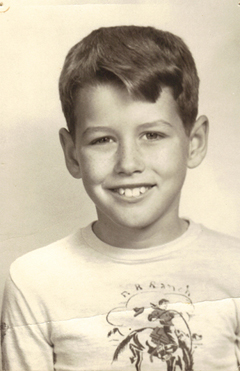When the three Great Allies met at Yalta at the beginning of February 1945, the war in Europe was coming to an end and the contours of the main political and economic problems in Europe were apparent to all. For Roosevelt, Stettinius, Hopkins, Byrnes, Harriman, and the other American leaders gathered in the southern Crimean resort, the critical challenges on the political level now seemed obvious, and the course for meeting them, while obscure in a few dimensions, they had also defined in outline.
First there was the question of Russian intentions. Next the Americans confronted the problem of the Left, the nascent civil war within a world war in the form of masses in revolt throughout the globe, masses that had suffered through a tragedy of historic enormity and unparalleled personal sacrifices.
The heads of state had not met since November 1943 and the political problems of war had multiplied without any serious diplomatic effort by the United States at any time to confront them before they became insoluble. Indeed, until the end of 1944 Washington hoped that by postponing discussions and confining conferences to specific American political and economic objectives, such as the United Nations or a reform of the world economy, it might more easily handle the immediate, pressing questions. British efforts to meet the problems of Eastern Europe head on, in the form of Churchill's strange meeting with Stalin in October 1944, could not succeed so long as the United States refused to show its hand. By the time of the Yalta conference most American leaders seriously doubted the premise that the American position would be stronger rather than weaker after delay, for now that the adhesive of common military danger in Europe had worn loose, the need for mutual collaboration on a political level had grown thin as well. For the Russians, Western aid in the form of a second front came late, perhaps much later than it was truly needed, and Soviet troops managed to consistently defeat German land power well before D-Day.
The war with Japan largely concerned the American military leaders, who insisted that Russian intervention into that war was necessary to bring it to a relatively quick conclusion, a need which operated in favor of the Russian diplomatic position.
The United States had always been suspicious of Bolshevism and Russia, but the mutual exigencies of the war compelled the Americans to subdue this fear, and for a time the American leaders hoped that Russia might some way be re-integrated into the world system which the united States projected as a key war aim, and in effect de-Bolshevized. These two beliefs went hand in hand, for Russian cooperation meant ipso facto the end of its revolutionary proselytizing. By the end of 1944" American optimism along this line...had virtually disappeared. Both Eastern Europe and the emergence of a new, regenerated Left elsewhere inevitably shattered the Americans' hope.
Eastern Europe consistently disappointed the American leaders, who regarded no question as important as that of Poland, which they saw as the prime index of Russian intentions. The London Poles' political strategy did not overly trouble the United States, though before Yalta, Washington deemed it wiser to hedge on the American wartime opposition to the Curzon Line and any discussion of border matters, a policy which encouraged the London Poles up to that time to oppose not merely the Russians, but the advice of the English as well. Now that the Russians recognized the Lublin Poles, Mikolajczyk resigned from the London government, and the English openly accused Washington of aiding intransigent Polish nationalism. (Consequently, the American) State Department was willing to reconsider its policy in the belief that it was not too late to undo the damage resulting from its traditional position. Yet American diplomats were convinced that the Polish situation had arisen because of Russian ambitions, not their own or Polish faults, much less the lack of options from which the Russians might choose. They did not juxtapose Poland against the very different conditions that were emerging in Czechoslovakia, Finland, or Rumania mainly because they could not accept the neutralist and left-oriented logic of Benes' politics, much less see Soviet policy in those nations as an example of Russian conservatism within the internal structure of postwar Eastern European society.
Not the evidence of Soviet pluralism but the irritating Russian insistence that they apply precisely the "Italian pattern" to Rumanian, Hungarian, and Bulgarian occupation governments caught United States attention and raised its gravest alarm. Yugoslavia represented the Eastern European future the Americans most feared, for here the Russians, British, and Yugoslav Communists collaborated to exclude American influence altogether, in large part because America's support of Mihailovic's Chetniks (in the Balkans) proved a disaster. They had not heeded British pleadings that they try to control Tito by working with him on the basis of nationalism. However, a synthesis of Communism and nationalism was a subtle concept with no place in Washington's definition of the Left in Eastern Europe or anyplace else for that matter. Rather than adapt itself to the universally anti-Bolshevik realism of the British or the conservatism of the Russians, Washington contented itself until Yalta with thwarting the ambitions of both its allies as best it might and evolving long-term goals in Eastern Europe overwhelmingly economic in character, rather than formulate immediately relevant political strategies.
(Note: You can view every article as one long page if you sign up as an Advocate Member, or higher).





